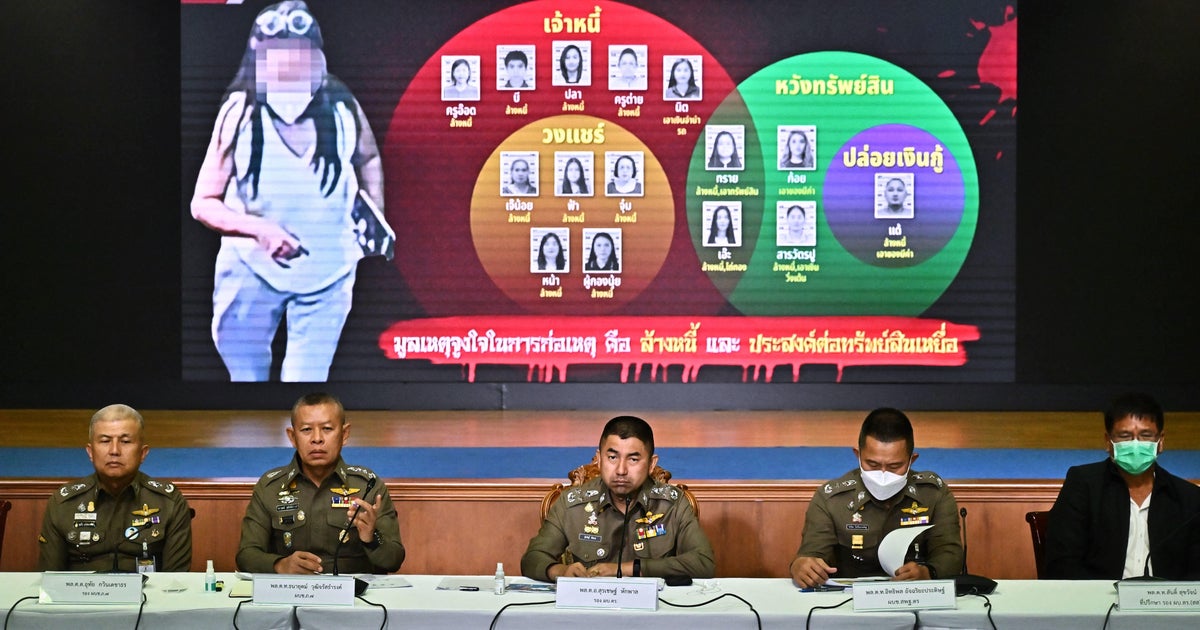Russian transgender woman faces "death sentence" in men's prison over erotic cartoons
Moscow — A Russian transgender woman has been sentenced to three years in prison on child pornography charges for posting several Japanese manga cartoons online. Human Rights Watch calls the charges "bogus," and friends and activists fear that being sent to a men's prison could effectively make her short prison sentence a "death sentence."
The 53-year-old woman, known among friends as Michelle, was convicted last month of "distributing pornography depicting minors" for sharing three erotic Japanese manga-style drawings featuring nude cartoon characters on her personal VK page, a popular Russian equivalent of Facebook.
While Michelle has been undergoing hormone therapy for a couple years, she is still legally male, so would be sent to a men's prison unless her sentence is overthrown.
Investigators concluded that the images Michelle posted were used to "meet persons of non-traditional sexual orientation," according to the charges seen by CBS News.
The images were posted in 2013 and 2014, but went unnoticed by authorities until last year. Investigators ordered an expert evaluation, which concluded that some of the cartoon characters were under 14 years old.
Lada Preobrazhenskaya, a trans blogger and friend of Michelle's who is helping fight the charges, calls the allegations absurd.
"They are cartoon characters, how can one really establish how old they are?" she told CBS News.
Preobrazhenskaya said her friend didn't initially take the investigation too seriously. When she suggested raising money for a good defense lawyer, Michelle sided with her wife, who strongly opposed the idea, fearing publicity.
Michelle was assigned a court-appointed public defender, who convinced her to plead guilty and get an expedited trial. Preobrazhenskaya has since raised money and hired a Moscow lawyer to help appeal the sentence. She has asked for the court's permission to help represent Michelle along with the lawyers.
Michelle is currently in custody in her hometown of Bryansk, a provincial city located about 200 miles southwest of Moscow, awaiting an appeal hearing.
Before her conviction she worked as an epidemiologist at a local clinic. If her appeal is rejected, she will be sent to a penal colony full of male convicts.
"She will be either killed or heavily beaten there," Preobrazhenskaya predicted, citing the poor human rights record of Russia's prison system and low tolerance towards LGBTQ individuals among inmates, and Russians in general.
"Michelle was sentenced to 3 years!!! For a trans woman it is a death sentence," said LGBTQ advocacy group, the Moscow Community Center, in a Facebook statement on the case.
Maria Chaschilova, a lawyer at the Community Center, told the Novaya Gazeta newspaper that if Michelle "will be able to readjust and will use her male name and will behave like a man, she will have at least a small chance (to survive) for some time."
The New York-based rights group Human Rights Watch called the charges against Michelle "bogus" in an article posted last week, and said "such a blatant disregard for her gender identity leaves Michelle extremely vulnerable to abuse by both male detainees and guards."
Chaschilova noted also that Michelle needs access to hormone therapy to continue her transition, and it's not clear whether prison officials would allow that. The World Professional Association for Transgender Health warns that for trans people in detention the "consequences of abrupt withdrawal of hormones… include a high likelihood of negative outcomes such as surgical self-treatment by autocastration, depressed mood, dysphoria, and/or suicidality."
A CBS News request for comment from the local prosecutor's office was not answered by the time of this story's publication.
As the charges include child pornography, the case was heard behind closed doors and most of the related documents have remained unreleased under Russian laws meant to protect underage victims. That, despite the fact that the "minors" in question in this case are cartoon characters.
The LGBTQ community is often marginalized in Russian society, where laws ban so-called "gay propaganda." Social media users can be prosecuted for posting information about LGBTQ issues.





